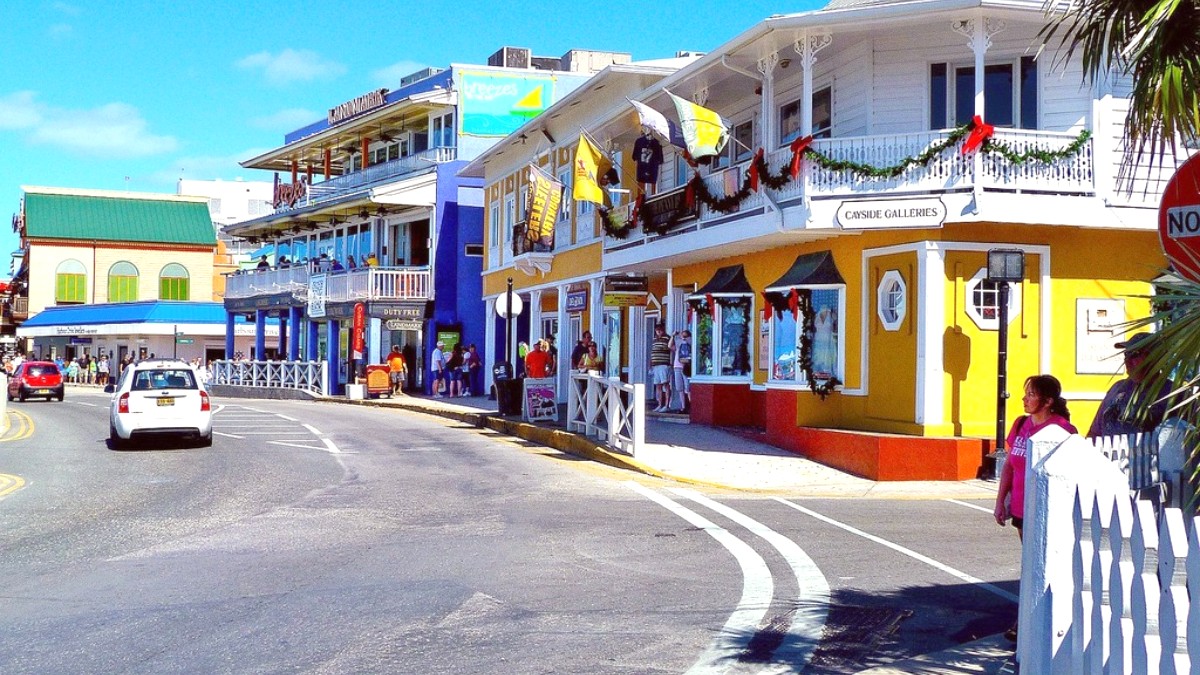
Cayman Islands
Pack lightweight, breathable fabrics. Cotton, linen, or quick-drying synthetics work well. These materials manage the heat and humidity.
The Cayman Islands maintain a relaxed atmosphere. However, awareness of local customs shows respect. Modesty is appreciated when visiting churches or government buildings.
Sandals, flip-flops, and water shoes are perfect for the beach and general casual wear. Water shoes protect from rocky shorelines.
Comfortable walking sandals or breathable Sneakers are ideal for exploring towns, attractions, and longer walks.
Water shoes are highly recommended. They protect your feet from coral fragments and potential marine life hazards.
The Cayman Islands use Type A and Type B power outlets, similar to the United States and Canada. The voltage is 120V, and the frequency is 60Hz.
Photography opportunities are plentiful. A Waterproof camera like a GoPro or a Waterproof phone case proves useful for underwater activities. Bring extra memory cards and batteries. A Lightweight tripod helps with night photography for Bioluminescent Bay tours.
Use cloud storage services (like Google Drive or Dropbox) for backing up photos and scanned copies of important documents.
This protects your memories and grants access to documents if originals are lost. Keep copies separate from originals.
A VPN service like NordVPN or ExpressVPN adds a layer of security for public Wi-Fi.
Your health and well-being deserve attention during travel. Pack a basic kit and any specific items you need to stay comfortable and safe.
Tap water is potable in Grand Cayman, as it is desalinated and purified. A Personal water filter can deliver extra peace of mind for some travelers.
While tours often provide gear, bringing your own Full-face snorkel mask or a traditional Snorkel set provides comfort and hygiene.
If you are a certified diver, bringing your own Mask, snorkel, and fins is a good idea. Regulators and BCDs are readily available for rent from local dive shops.
A Quick-dry towel and a compact beach blanket or sarong work well for beach days. These items are lightweight and packable.
Small items can make a big difference in comfort and convenience. These miscellaneous items improve your travel experience.
Be a responsible traveler.
A small Waterproof bag or pouch for phone, wallet, keys on boat trips or at the beach.
High-quality Reef-safe sunscreen is important for skin and marine life. Local availability may be limited or expensive.
A strong Insect repellent with DEET or picaridin for evenings.
Have small denominations of KYD cash ready for transport or local purchases.
Consider using packing cubes to maximize space and keep your suitcase organized. Roll clothes to save space and minimize wrinkles.
Make a checklist of all items to pack. This reduces chances of forgetting important necessities.